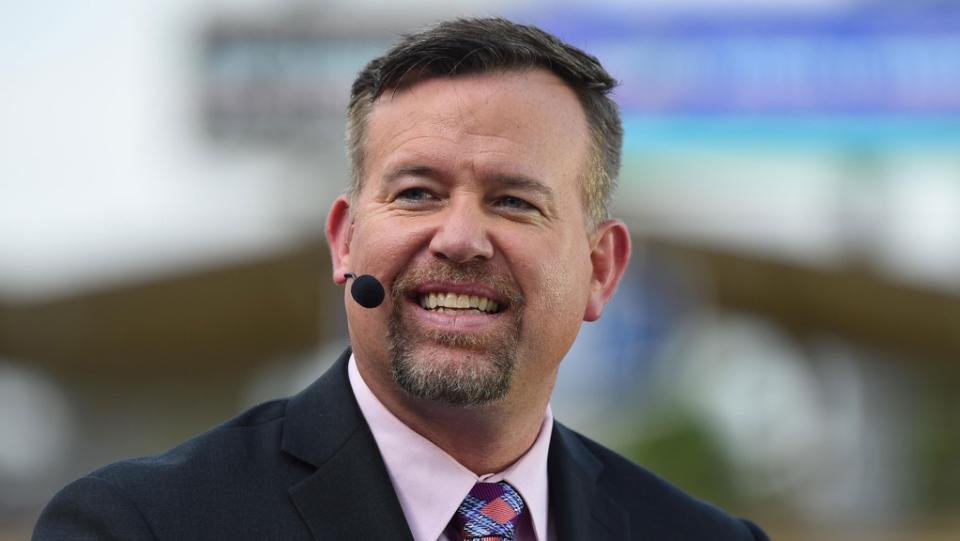
The first in-season coaching change of Brian Cashman‘s career revealed a healthy power dynamic within the Yankees organization.
But did it also introduce a new risk?
Cashman and manager Aaron Boone share the common goal of seeking a finely calibrated balance between analytics and field experience. They are open to cutting-edge data and technology, but understand the uselessness of those tools without the human arts of empathy and implementation.
Cashman’s ability to convince Hal Steinbrenner last week to fire hitting instructor Dillon Lawsonand Boone’s recommendation of his friend Sean Casey as Lawson’s replacement, reinforced that the two have Steinbrenner’s trust more than anyone in the organization who favors a data-only approach (stats whiz assistant GM Michael Fishman does not fall into that category, by the way; he believes in intellectual diversity).
Casey is, to use his word from Wednesday’s introductory Zoom call with reporters, a “connector,” a person who can relate to the Yankees’ veteran hitters by virtue of his warm personality and experience in a big league batters box.
Those are highly valuable qualities, and ones that the Yankees needed. But here’s what he’s not: A person with any knowledge of the team’s organizational hitting philosophy.
When I asked Casey if he planned to get up to speed about what the Yankees’ homegrown hitters are taught, he said, “The minor leagues are the minor leagues, and I understand that guys come up. But I feel like when you get to the big leagues, it’s a different animal… when you get up here, you know what you’re doing. You have an approach.”
Sure, the Aaron Judges, Giancarlo Stantons and Anthony Rizzos will appreciate the respect inherent in that statement.
But to look at it another way for a moment: The Yankees have spent years working to build consistency across Kevin Reese‘s player development system — in hitting, pitching, strength and conditioning, and so on.
Before becoming the major league hitting coach, Lawson spent three years as the Yankees’ hitting coordinator. His promotion allowed the team to build a bridge across the entire system, and foster a common language and common values.
Like any strong organization, the Yanks have always encouraged cohesion across levels; this is why, in the ’80s, Billy Martin would invite all minor league managers to spring training and require that they learn the same drills that he ran with the big boys.
On Thursday I asked Cashman if the Casey hiring introduced a new challenge, or was a step away from interconnectedness.
“No,” Cashman said. “[Casey’s] job is a laser focus: Getting the hitters ready for games. It’s about game planning and finding a way to win that day. And all our hitters are different. Our Triple-A, Double-A, Florida Complex League, that’s a completely different animal, and he is not going to be involved in that right now. His job is trying to help us get to and win a World Series.”
Cashman said that despite Lawson’s ouster, the Yankees do not plan to change their organizational or player development approaches to hitting. Lawson was influential in designing those.
The current hitting coordinator, Joe Migliaccio, worked under Lawson. Migliaccio is highly regarded within the organization as a coach who relates well to young players. Casey Dykesone of Lawson’s assistants until Sunday, remains with the big league club.
“Dillon hired most of our hitting people,” said one team official.
The Yankees’ hitting philosophy is often misunderstood as one that chases launch angle and exit velocity at the exclusion of all other skills and qualities. The reality is far more nuanced.
Hitters in the Yanks’ system are taught to keep the ball off the ground, preferably on the pull side. They are taught where more damage is done on batted balls, and where power is least effective, typically to dead center field. They use bat sensors and weighted ball programs to achieve these goals.
None of this will change. It just won’t be reinforced in the same way by the major league hitting coach for the remainder of this season.
After that?
“We’ll all reassess after the season,” Cashman said. “And see where we’re at.”